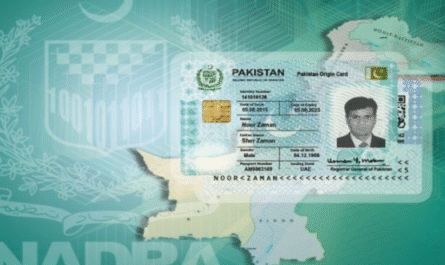In a shocking development, Islamabad police have arrested a foreign national allegedly involved in selling cocaine to university students in the capital city. The case has sparked widespread concern about the growing menace of drug trafficking in Pakistan, particularly the alarming trend of narcotics infiltrating educational institutions. Authorities believe this arrest could be a breakthrough in uncovering a larger network of drug peddlers operating in and around Islamabad.
The Arrest
According to police sources, the woman was apprehended during a targeted operation by Islamabad’s Anti-Narcotics Squad. Acting on intelligence reports, the police set up surveillance in an upscale neighborhood of the capital where she was reportedly conducting her activities. The suspect was caught red-handed while attempting to sell cocaine to young buyers, many of whom are believed to be students of local universities.
During the raid, law enforcement officers recovered a significant quantity of cocaine, along with cash, digital devices, and contact details of potential buyers. Authorities are now investigating her links to an international drug trafficking network that supplies narcotics across South Asia.
Drug Culture Among Students
The incident has reignited debates about the increasing prevalence of drugs among students in Pakistan. Cocaine, considered one of the most expensive narcotics in the world, has gained popularity among affluent circles, particularly in elite educational institutions. Experts warn that drug abuse not only destroys individual lives but also erodes the moral and social fabric of society.
University students, especially in metropolitan areas like Islamabad, Lahore, and Karachi, are often targeted by drug dealers. The promise of “thrill,” peer pressure, and a lack of strict monitoring in social settings make them easy prey. Once hooked, students fall into a vicious cycle of addiction that can ruin their education, careers, and family lives.
Law Enforcement’s Role
Islamabad police have intensified operations against drug dealers in recent years, with several arrests made in connection with narcotics smuggling. However, this latest case highlights the evolving tactics of traffickers. The involvement of a foreign woman indicates that international drug syndicates are actively attempting to penetrate Pakistani markets.
Police officials stated that this arrest was the result of weeks of intelligence gathering, undercover surveillance, and coordination with other security agencies. They emphasized that drug traffickers are constantly changing methods of distribution, using encrypted communication, social media platforms, and online payment systems to evade detection.
Government and Institutional Response
The government of Pakistan has long recognized the threat of narcotics, establishing organizations like the Anti-Narcotics Force (ANF) to combat the issue. However, with drugs making their way into educational institutions, there is a renewed urgency for coordinated efforts between law enforcement, universities, and civil society.
Educational institutions in Islamabad are now under pressure to tighten security measures on campuses. Administrators are being urged to establish strict checks, conduct awareness campaigns, and introduce counseling services for students. Parents, too, are being asked to remain vigilant about their children’s social circles and behavioral changes that might indicate drug use.
The Bigger Picture: Pakistan’s Narcotics Problem
While Pakistan is not a major producer of cocaine, its geographical location makes it vulnerable to drug trafficking. The country lies close to Afghanistan, the world’s largest producer of opium. This proximity has historically made Pakistan a transit hub for narcotics smuggled into international markets. In recent years, however, there has been a concerning rise in domestic consumption of synthetic drugs like methamphetamine (commonly known as “ice”) and imported substances such as cocaine.
The availability of these drugs in urban areas points toward organized criminal networks that exploit weaknesses in border control and law enforcement. Experts argue that unless these networks are dismantled, Pakistan risks seeing an escalation in drug-related crime, addiction, and social decline.
Public Reaction
The news of the foreign woman’s arrest has triggered a strong reaction from the public. On social media, many users expressed anger that drug traffickers are targeting students, with calls for stricter punishments and deportation of foreign nationals involved in such crimes. Others emphasized the need for addressing the root causes of drug abuse, such as unemployment, lack of recreational facilities, and social pressures faced by the youth.
Civil society organizations working on drug rehabilitation have also urged the government to focus not just on arrests but also on prevention. They argue that awareness campaigns in schools and colleges, along with accessible rehabilitation centers, are crucial in countering the growing threat.
Legal Proceedings
The arrested woman is currently under investigation, and formal charges are expected to be filed soon under Pakistan’s strict anti-narcotics laws. If convicted, she could face a lengthy prison sentence, heavy fines, and eventual deportation. Authorities are hopeful that interrogating her will reveal critical information about the broader drug network operating in the capital.
Legal experts note that Pakistan has a zero-tolerance policy toward narcotics, with severe punishments for those caught trafficking. However, the challenge lies in ensuring consistent enforcement of the law and preventing influential criminals from escaping justice through loopholes or corruption.
Protecting Students from Drugs
The arrest serves as a wake-up call for all stakeholders—parents, teachers, law enforcement agencies, and policymakers. Protecting students from the scourge of drugs requires a multi-pronged strategy:
- Awareness Campaigns: Regular seminars, workshops, and media campaigns can educate youth about the dangers of drug abuse.
- Counseling Services: Universities must establish counseling centers where students struggling with addiction can seek help confidentially.
- Stronger Campus Security: Institutions should work closely with police to prevent the entry of drug dealers into campuses.
- Parental Involvement: Parents must engage in open conversations with their children about peer pressure and the risks associated with narcotics.
- Strict Legal Enforcement: Crackdowns on suppliers must be paired with strong legal action to deter others from engaging in such crimes.
Conclusion
The arrest of a foreign woman accused of selling cocaine to students in Islamabad has exposed the dangerous reality of drug trafficking targeting Pakistan’s youth. While law enforcement agencies deserve credit for their swift action, the case underscores the need for a holistic approach that combines strict policing with education, awareness, and rehabilitation.



